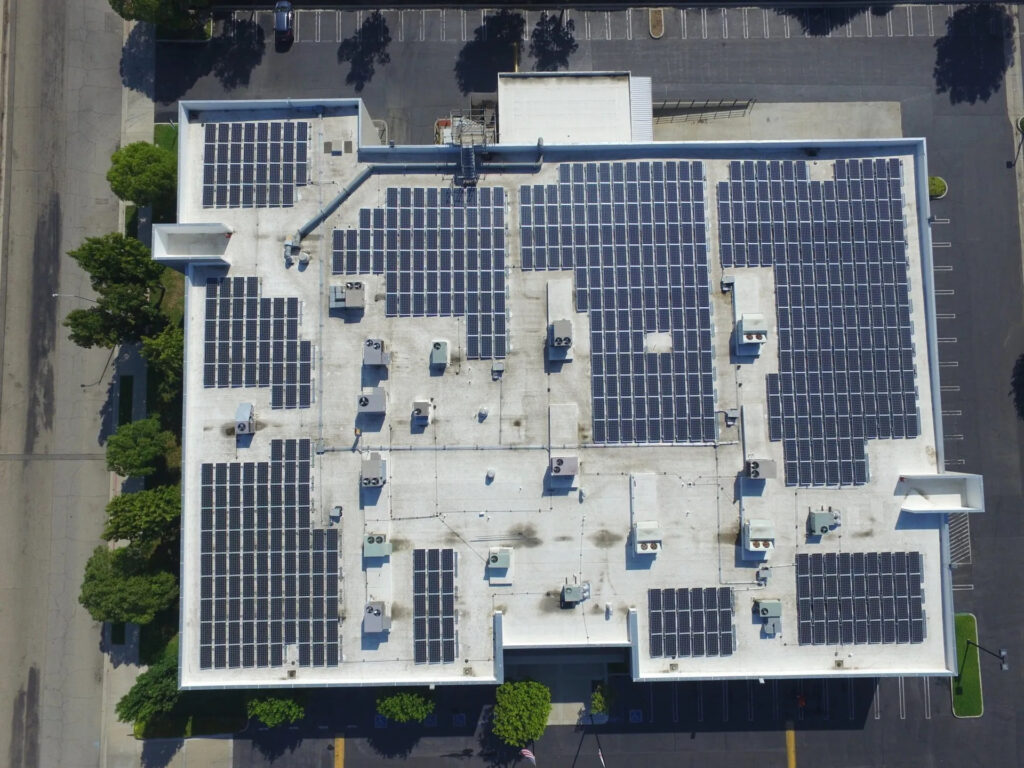Welcome to our comprehensive guide on solar roofing, a groundbreaking technology that is transforming homes into energy hubs. In this article, we delve into the benefits and advantages of solar roofing, its installation process, and how it can revolutionize your home’s energy consumption. By the end of this article, you’ll have a clear understanding of why solar roofing is a superior choice for homeowners looking to reduce their carbon footprint and save on energy costs.
Understanding Solar Roofing
Solar roofing, also known as photovoltaic (PV) roofing, involves integrating solar panels seamlessly into traditional roofing materials. This innovative technology allows homeowners to harness the power of the sun to generate electricity for their homes. The solar panels on the roof absorb sunlight and convert it into clean, renewable energy that can be used to power appliances, lighting, and other electrical devices.
Advantages of Solar Roofing
- Sustainable Energy Source: Solar energy is renewable, abundant, and environmentally friendly. By installing solar roofing, you can significantly reduce your dependence on fossil fuels, thereby contributing to a greener and more sustainable future.
- Energy Cost Savings: Solar roofing enables homeowners to generate their own electricity, reducing their reliance on the grid. This results in substantial cost savings on monthly energy bills as well as protection against future energy price hikes.
- Long-Term Investment: Installing solar roofing is a wise long-term investment. It not only adds value to your home but also offers a reliable source of clean energy for years to come. Furthermore, many governments and utility companies offer financial incentives and tax credits to encourage homeowners to adopt solar energy.
- Low Maintenance: Solar roofing systems are designed to be durable and require minimal maintenance. With no moving parts, the risk of mechanical failure is significantly reduced, and the panels typically come with lengthy warranties.
- Energy Independence: Solar roofing empowers homeowners to become more self-sufficient in their energy production. By generating electricity on-site, you can have peace of mind during power outages and unforeseen circumstances.
Installation Process
The installation of solar roofing involves several key steps:
- Site Assessment: A professional solar installer will visit your home to assess its solar potential. Factors such as roof orientation, shading, and structural integrity will be evaluated to determine the optimal placement and capacity of the solar panels.
- Design and Engineering: Based on the site assessment, a customized solar system design will be created to maximize energy production and aesthetic integration. The design takes into account your energy needs, available roof space, and local regulations.
- Permitting and Approvals: The solar installation company will handle the necessary permits and approvals required for the project. They will ensure compliance with local building codes and regulations, streamlining the process for you.
- Installation: Once all permits are obtained, the solar panels and associated components will be installed on your roof. The panels are securely mounted, and electrical connections are made to integrate the system with your home’s electrical infrastructure.
- System Activation and Monitoring: After installation, the system will be activated, and the solar panels will start generating electricity. Many solar systems come with monitoring capabilities, allowing you to track your energy production and consumption in real-time.
Solar Roofing and Environmental Impact
Solar roofing plays a crucial role in combating climate change and reducing carbon emissions. By adopting solar energy, homeowners can make a significant positive impact on the environment. Here are a few key environmental benefits:
- Reduced Carbon Footprint: Solar energy is a clean and renewable source of power. By switching to solar roofing, you can significantly reduce your reliance on fossil fuels, helping to mitigate the greenhouse gas emissions responsible for climate change.
- Improved Air Quality: Traditional electricity generation relies on the burning of fossil fuels, which releases pollutants into the atmosphere. Solar roofing produces electricity without any harmful emissions, leading to improved air quality and better overall health for communities.
- Conservation of Natural Resources: Solar energy reduces the demand for finite natural resources such as coal, oil, and gas. By harnessing the power of the sun, we can preserve these valuable resources for future generations.
Conclusion
Solar roofing represents a transformative solution for homeowners seeking to embrace sustainable living, reduce their energy costs, and contribute to a greener future. With its numerous advantages, including sustainability, long-term savings, and energy independence, solar roofing has the potential to revolutionize the way we power our homes.


